What Happens If You Never Clean Your Hairbrush, Doctors and Stylists Say
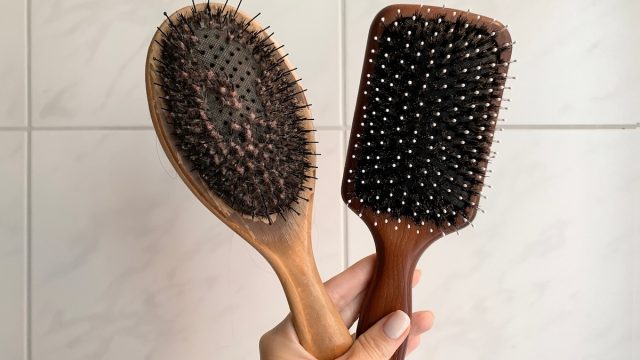
Taking good care of your hair is a timely endeavor. You have to trim it regularly, nourish it with top-tier shampoos and conditioners, and handle it gently with accessories like microfiber towels and silk scrunchies. It’s also imperative to clean your hairbrushes often to maintain great hair health—a task that a lot of us probably neglect (or at least don’t do as often as we should). If you’re one of these people, keep reading to hear from dermatologists and stylists to find out what really happens if you never clean your hairbrush. Spoiler: it’s not good.
READ THIS NEXT: What Happens If You Don’t Wash Your Hair for a Week, According to Doctors.
Gunk will build up—and weigh down your hair.
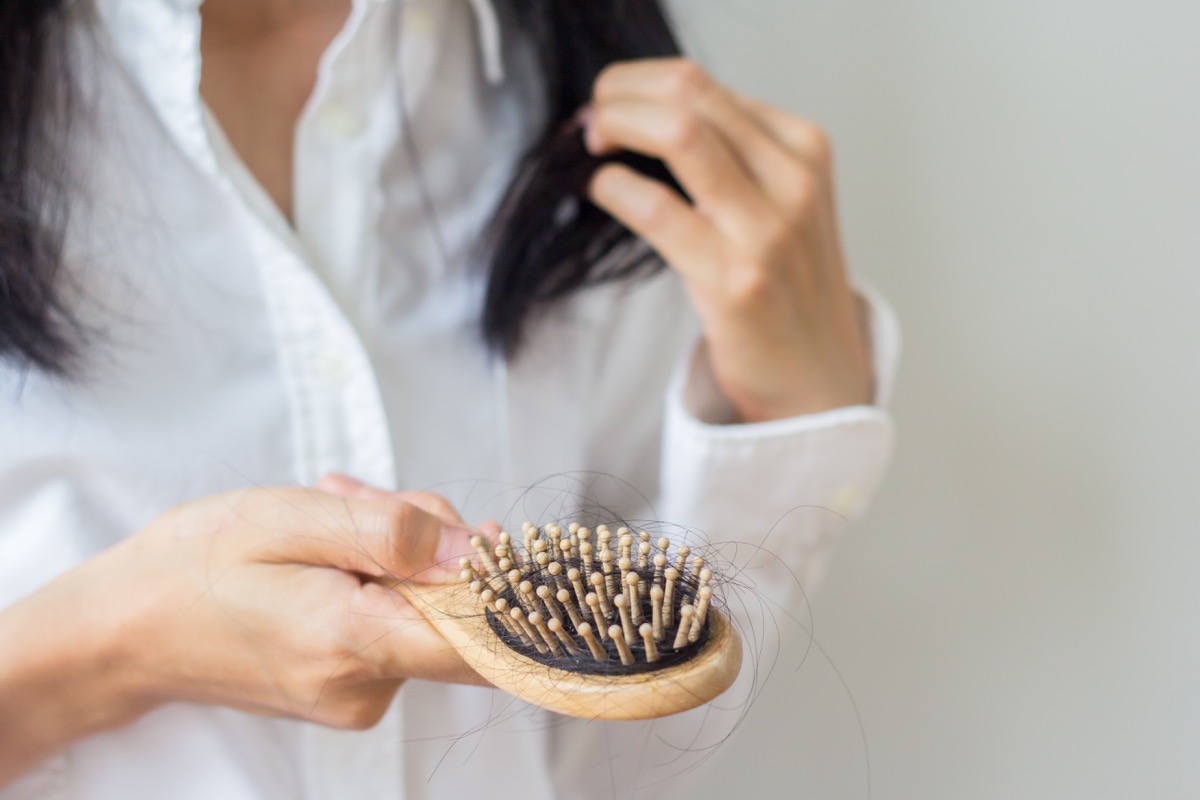
Not washing your hairbrush leads to a buildup of oils, dirt, and dead skin cells, says Alpana Mohta, MD, a dual board-certified dermatologist. As you continue to use the brush, that gunk transfers back to your hair. “This can make your hair look dull, greasy, and lifeless.”
If you use popular styling products, such as hairspray, mousse, serums, or oils, those will also build up on the brush and get back in your strands. “That can weigh your hair down and make it harder to style,” Mohta adds.
If you notice your hair looking flat or needing clarifying shampoo more often, inspect your hairbrush. It just might be the culprit.
The brush could damage your hair.
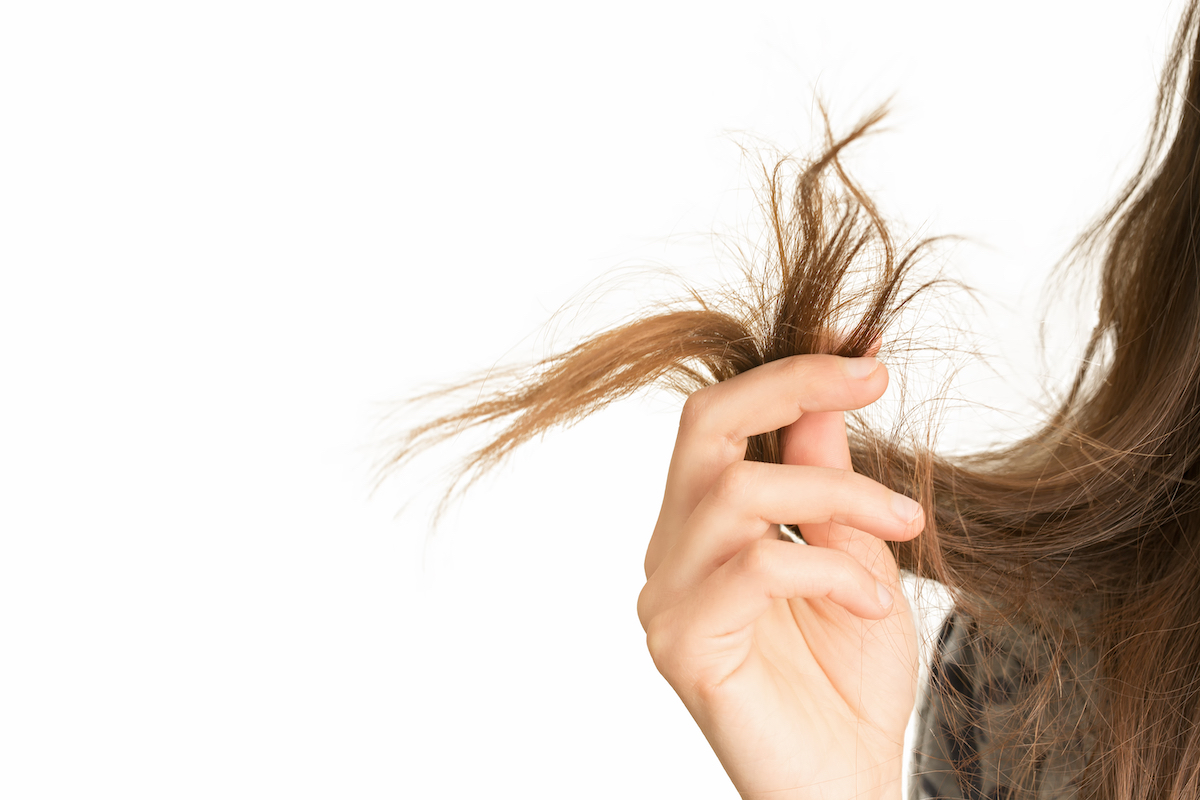
Not only can a dirty brush hinder the look of your hair, but it can also damage your hair’s health. “A hairbrush filled with hair and debris can create tangles and knots in your hair, making it harder to brush and style,” says Hamdan Abdullah Hamed, board-certified dermatologist and co-founder of Power Your Curls. “This can lead to breakage and split ends.”
The first thing you may notice when this happens is that your brush isn’t able to remove knots as easily as it once could. If that’s the case, give it a wash.
READ THIS NEXT: What Happens If You Don’t Clean Your Makeup Brushes for Over a Month, According to Experts.
The brush could harm your scalp.
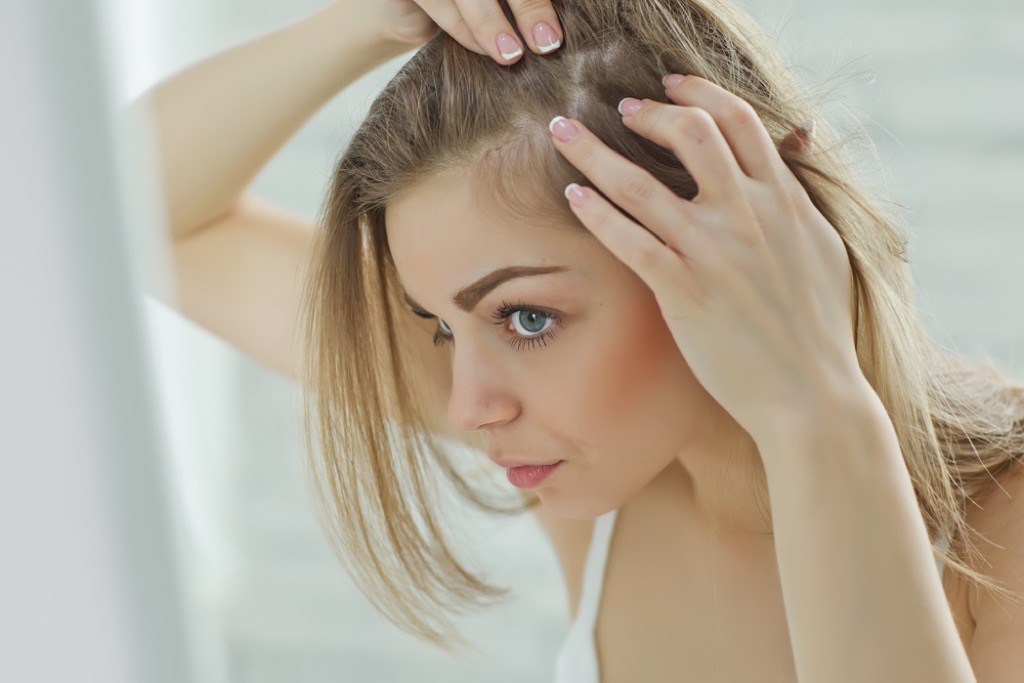
Your scalp’s health might also take a hit. “A dirty hairbrush can hold onto bacteria and fungus, which can lead to scalp infections, such as folliculitis,” says Steven Line, MD, member of the advisory board of the American Cosmetic Association. “It can transfer oils and dirt, which can lead to dandruff and other scalp issues.”
Sharing dirty hairbrushes can compound your risk. “I have also had patients who developed warts on the scalp due to sharing dirty and unclean brushes with other people,” says Mohta. To ensure your tools are properly sanitized, avoid trading them with others.
The brush could begin to smell.

If you didn’t wash your hair for a while, it would probably start to smell. Well, the same thing happens to your hairbrush. “This is because the buildup of oils, dirt, and hair can create a breeding ground for bacteria, which can produce an unpleasant odor,” says Line.
“Additionally, if you use hair products like hairspray or mousse, they can leave a residue on the brush that can also lead to a bad smell,” Line adds. Weekly washes will keep bad scents at bay.
For more health and beauty news sent directly to your inbox, sign up for our daily newsletter.
The brush itself could break.
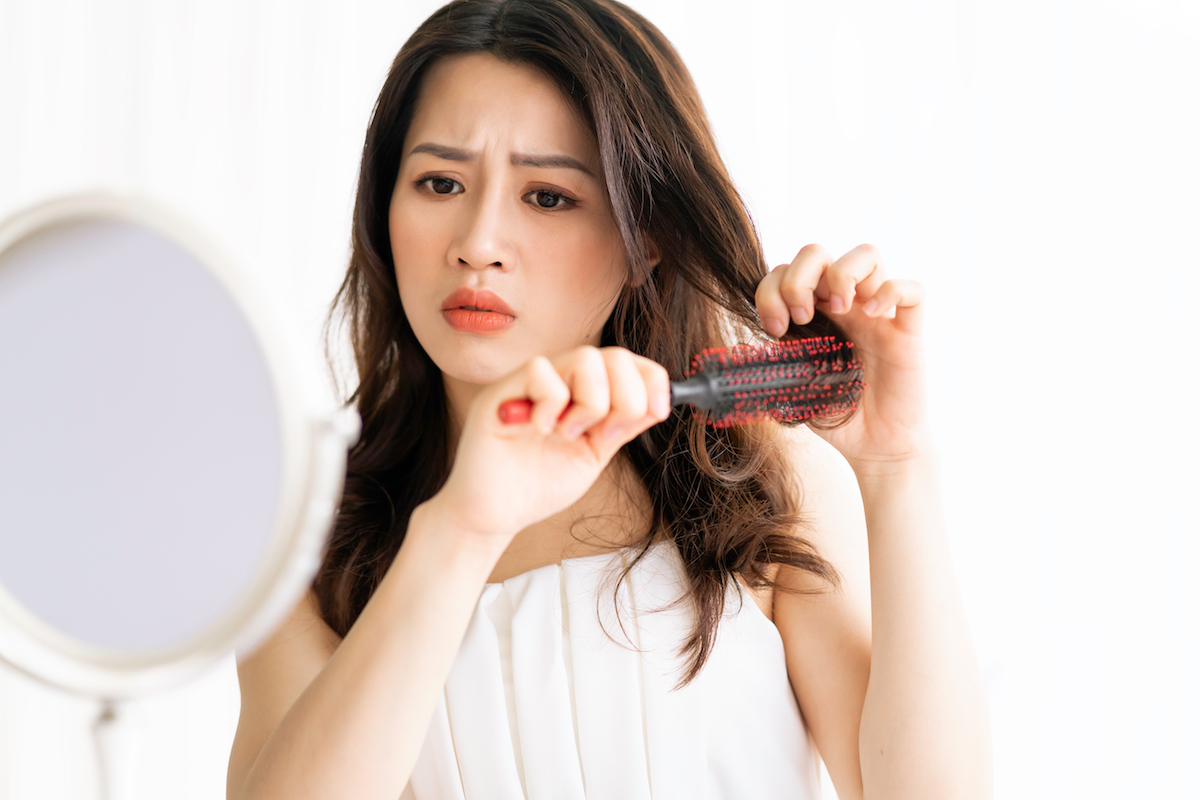
By not taking care of your brushes, you could limit their lifespan—meaning you end up shelling out more on hair tools over time. According to Mohta, a buildup of product and oils can cause hairbrush bristles to become brittle and break. Plus, “if you have a natural bristle brush, the buildup can cause the bristles to become matted and lose their effectiveness,” she adds.
To ensure your brush’s longevity, and to protect your strands and scalp, experts recommend washing your hairbrush once a week. For synthetic brushes, simply remove loose hairs and soak the brushes in warm, sudsy water for 10 minutes. Rinse and dry, and you’re set!